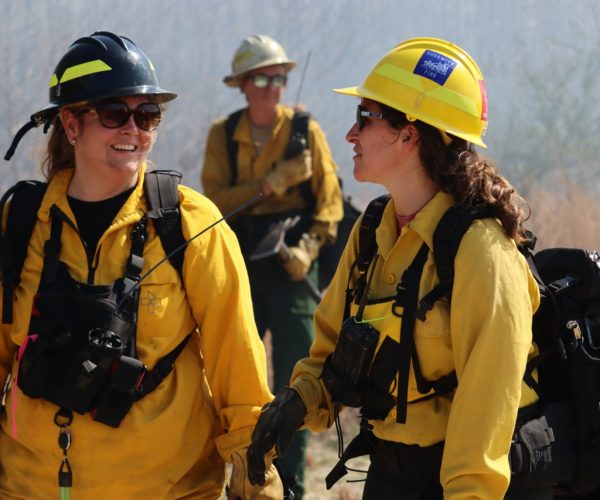

ABOUT
Wildfire is complex and multifaceted. As with any complex issue, a variety of perspectives are essential to finding workable solutions. Women-in-Fire Prescribed Fire Training Exchanges (WTREX) support people working to strengthen and broaden this workforce.
WTREX are modeled after the Prescribed Fire Training Exchanges (TREX) that got started in Great Plains Fire Learning Network landscapes in 2008. The TREX model typically assembles participants for two weeks of hands-on training, treatments, and outreach; it melds live-fire training with deeper learning on fire ecology, policy and social dynamics. WTREX reframes this model, bringing everyone together to burn and learn in a supportive, welcoming environment.

WTREX events are unique in that they create a supportive environment and build a network of relationships that last beyond a single event. Participants learn they’re not alone in the challenges they face, and they return home inspired and empowered.
"I would love to see more women in leadership positions. I think we can accomplish this with more women having these kinds of experiences to gain more confidence, not be afraid to be who they are, and have a voice."
– North Carolina 2023 WTREX Participant
PARTNERS
The WTREX Program is led through a partnership between The Nature Conservancy and The University of California Agriculture and Natural Resources, in collaboration with many other organizations and agencies. Each individual WTREX event relies on a wide range of local partners and hosts, working with and supported by the WTREX team.

History
Several women at a 2015 Prescribed Fire Training Exchange (TREX) in North Carolina found themselves sharing their challenging experiences as women in fire—and decided to act. A year or so later, the first WTREX was held in northern California in October 2016. Lenya Quinn-Davidson, lead organizer of WTREX, and others on the team were nervous about how the fire management community might perceive it and were unsure about participants’ expectations. As it turned out, the event was a resounding success. Since then, WTREX events have been held in locations including California, Florida, North Carolina, Nebraska, and Virginia. The program has also spread throughout the world, with WTREX alumnae spearheading events in South Africa, Canada, and Portugal.
